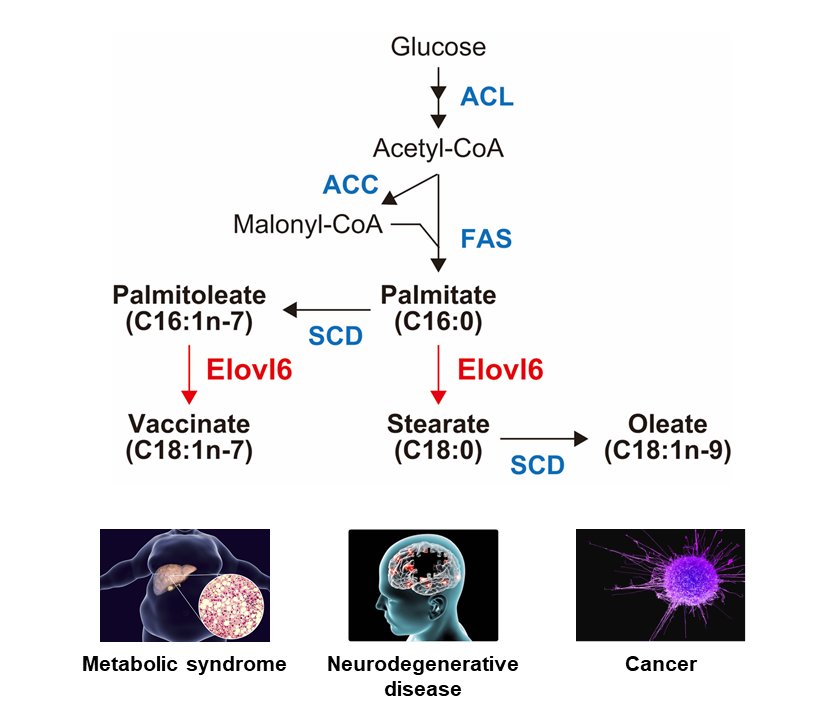Integrated Biomedical Science Division
Energy Metabolism
Development of new strategies for the treatment of lifestyle-related disease by qualitative control of fatty acids
The prevalence of obesity and metabolic disease has grown to epidemic proportions around the world, including in Japan. As such, there is an urgent need to better understand the molecular basis of energy metabolism and to provide new development leads for effective therapeutic approaches which prevent lifestyle-related diseases.
We are working to understand the molecular mechanisms of nutrient signals, and which of those lead to fatty acid synthesis. In this process, we have identified and characterized a novel mammalian fatty acid elongase, Elovl6. This catalyzes the elongation of saturated and monounsaturated fatty acids with 12, 14, and 16 carbons.
We have shown that mice with targeted disruption of Elovl6 are resistant to obesity-induced insulin resistance, impaired insulin secretion and obesity-related disorders, despite developing obesity. Results suggest that inhibition of this elongase could be a new therapeutic approach for the treatment of diabetes, nonalcoholic fatty liver disease (NAFLD), cardiovascular disease and other metabolic diseases, even with concurrent obesity.
The long-term goal for our laboratory is to fully understand the role of Elovl6 in health and disease, and to elucidate the molecular mechanisms by which Elovl6 regulates energy metabolism, cellular function and disease formation through modulating the quality of fatty acids. We are also advancing our investigation findings to develop new therapeutic approaches for treatment of lipid-related diseases. Ultimately, we aim to provide approaches to help solve disease conditions such as metabolic syndrome, neurodegenerative disease and cancer based on control of fatty acid composition.
Research Division Leader
Professor Takashi Matsuzaka, Ph. D

Research Division Leader
See Associated External Research Website


